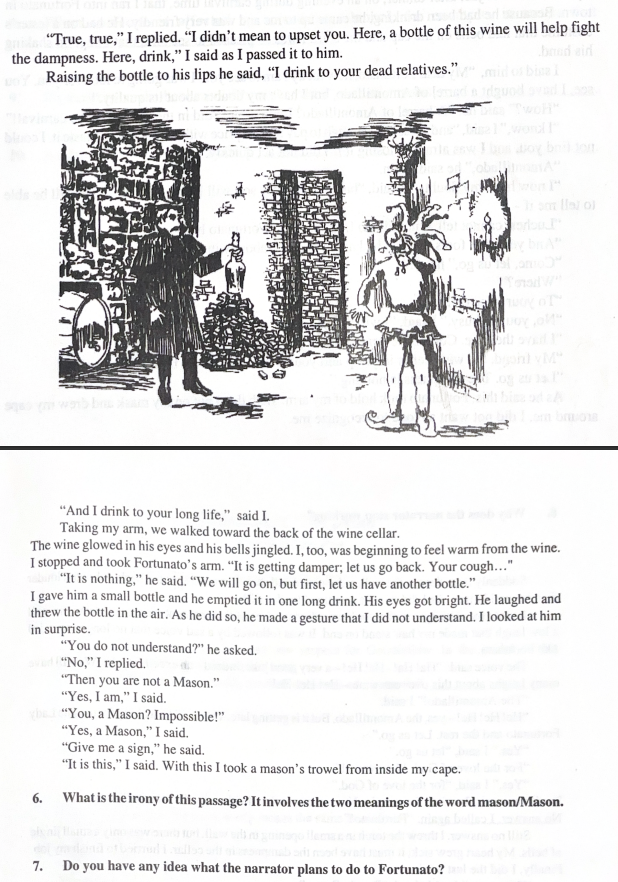What is the irony of this passage? It involves the two meanings of the word mason/Mason.

Understand the Problem
The question is asking for an analysis of a passage from a text, focusing on the irony related to the word 'mason/Mason' and the actions of the narrator toward Fortunato. The responder is expected to identify and explain the dual meanings of the word and how it relates to the characters' interaction.
Answer
The irony lies in the dual meaning of 'mason': Freemason and bricklayer.
The irony in the passage involves the double meaning of 'mason': Fortunato means a member of the Freemasons, a secret society, while Montresor refers to a literal mason, a builder, as he carries a trowel used for bricklaying, foreshadowing Fortunato's fate.
Answer for screen readers
The irony in the passage involves the double meaning of 'mason': Fortunato means a member of the Freemasons, a secret society, while Montresor refers to a literal mason, a builder, as he carries a trowel used for bricklaying, foreshadowing Fortunato's fate.
More Information
The passage uses this double entendre to create dramatic irony, as Fortunato is unaware of the sinister meaning behind Montresor's actions.
Tips
Common mistakes include not recognizing the double meaning or missing the foreshadowing element.
Sources
AI-generated content may contain errors. Please verify critical information